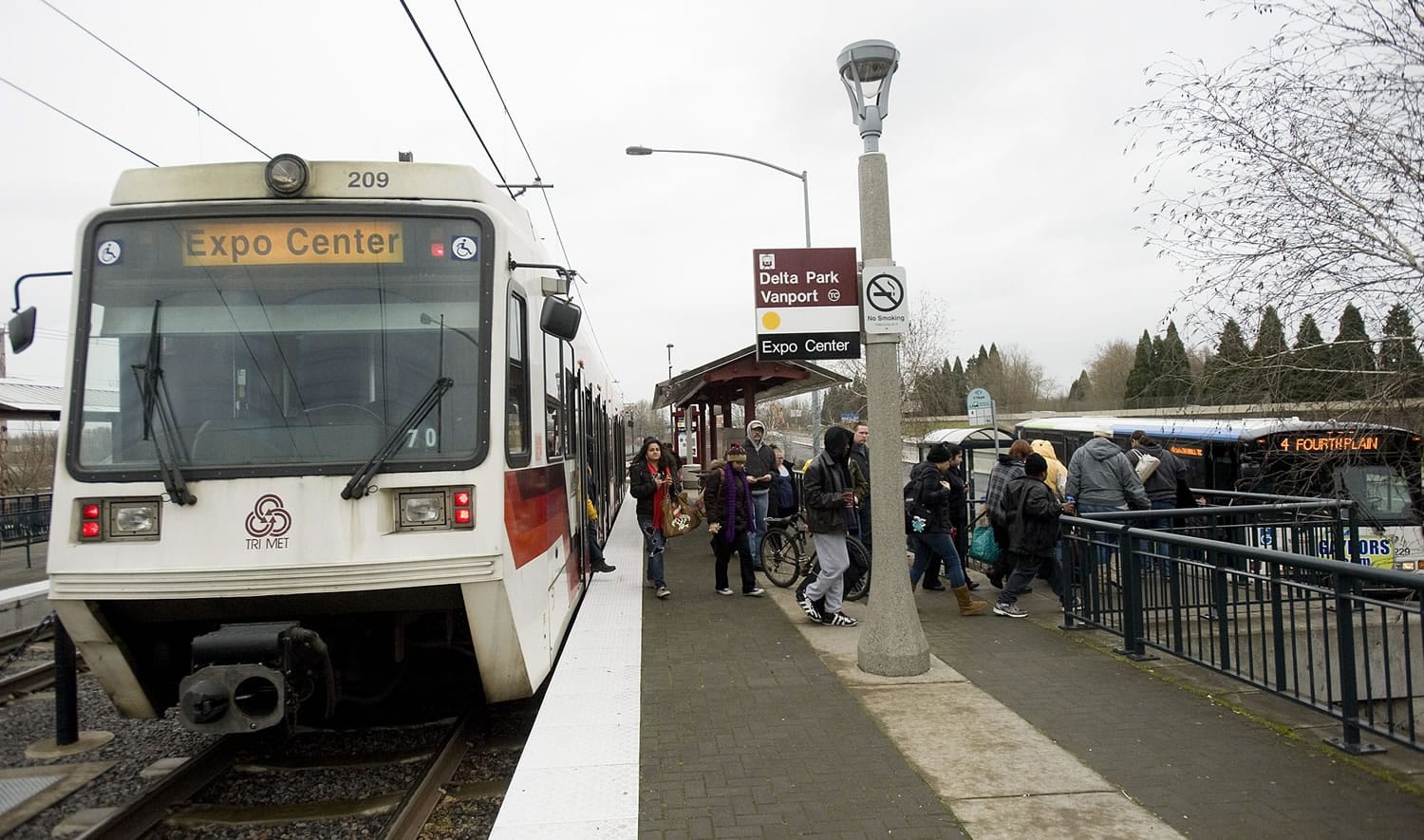The Vancouver City Council voted 4-3 Monday to exercise a bloc veto at this week’s C-Tran meeting.
The C-Tran Board of Directors meets Tuesday afternoon to discuss whether a 0.1 percent sales tax for maintenance and operation of light rail and bus rapid transit would go before the agency’s entire service area or a subdistrict.
But a majority of Vancouver’s council members favor no vote this year, preferring instead to vet other ways to pay the $2.57 million annual cost of light rail before asking for a sales tax vote.
Four councilors voted in favor of a motion to oppose advancing a sales tax vote “until all other funding options have been evaluated and discarded as not viable.”
Voting in favor were: Mayor Tim Leavitt and Councilors Jack Burkman, Larry Smith and Jeanne Harris.
Councilors Bart Hansen, Jeanne Stewart and Bill Turlay voted no.
Hansen, however, said he will, per council policy, follow the will of the majority of the council and join Leavitt and Smith in exercising a bloc veto.
A majority of the nine C-Tran board members, including the three-man Clark County Board of Commissioners, who also have veto power, have said they favor a broad public vote in November asking residents to help pay for light rail in Vancouver.
The remaining three members of the board represent small cities.
“A majority of the C-Tran Board is in favor of a districtwide vote,” Commissioner Steve Stuart said Monday. “I look forward to hearing from Vancouver’s representatives what they would like to put to a vote. … I know it hasn’t changed on our end.”
While councilors acknowledged Monday that “all other funding options” could be evaluated in time to put the matter to voters this year, they also acknowledged it’s unlikely that a decision would be made by late July in time to make the ballot.
Harris said the bloc veto “is a very unfortunate tool,” but she doesn’t feel comfortable going forward with a vote on a sales tax increase when there are other funding options to be studied.
Turlay and Stewart called the majority’s decision a stall tactic.
“We’re going to keep fiddling around with delay tactics,” Turlay said. Voters have been promised that they will see the issue on the ballot, he said.
Stewart said she doesn’t want to find a way to finance maintenance and operations that would circumvent a vote. She asked why every other funding possibility hasn’t already been studied.
“It’s a good question, and you were on C-Tran too,” Leavitt responded.
Smith said his vote doesn’t rule out anything.
The deadline to get the matter on the ballot is the end of July, “so in three months we’ll be at it again,” Smith said.
After the workshop, Leavitt said the characterization of the council’s vote as a stall tactic is “preposterous.”
It’s ironic, Leavitt said, that the same Columbia River Crossing opponents who are always calling for more information and more meetings are now critical of councilors who say they need more information.
A sales tax increase, if approved by the voters, would pay for $2.57 million a year in operations and maintenance of the extension of Portland’s MAX light rail line through downtown Vancouver to Clark College. (Additional money would go toward the operation and maintenance of a bus rapid transit line on Fourth Plain Boulevard.)
Options for savings
But Vancouver Transportation Planning Manager Matt Ransom presented a preliminary study that showed several other funding options that could reduce the need for a new tax or eliminate it entirely.
Eliminating or modifying bus lines that duplicate light rail’s route through downtown and into Portland creates savings that could be put into light rail, he said. Increased fare revenue, grants, and direct operations and maintenance services from other agencies (such as Vancouver maintaining certain elements) could cut the need for a tax to zero.
Burkman moved to have Vancouver use its three votes on the transportation agency board to ask that the vote be delayed until such options are better known.
Hansen said he wants a vote this fall to be held within a subdistrict such as Vancouver’s city limits and urban growth boundary. Hansen, however, will be held to voting as the majority of the city council wants — not as he individually wishes. In a punitive action, the city council in 2010 voted to remove Stewart from the C-Tran board for deviating from council instructions.
C-Tran must have financing plans for operations and maintenance of light rail before it applies for a Full Funding Grant Agreement from the Federal Transit Administration — the agency expected to pony up $850 million in federal money to construct the line.
C-Tran Public Affairs Director Scott Patterson told the city council that due to design delays with the Columbia River Crossing project, C-Tran will make that application in late 2013, meaning a vote this fall is not absolutely necessary.



